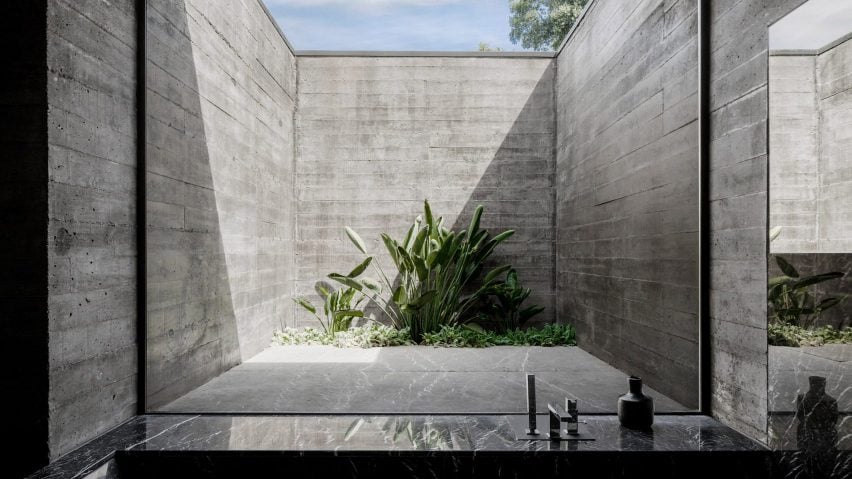
Ten homes that make decorative use of board-formed concrete
A board-formed concrete staircase that leads to a double-height library and a bathroom with irregular concrete walls are among ten home interiors with board-formed concrete showcased in this lookbook.
Board-formed or board-marked concrete is a method of concrete construction that involves pouring concrete into temporary volumes or moulds, typically made from wooden boards.
As a result of the mould's wooden board-formed construction, once set the cast concrete is left with a board-marked surface that imprints the pattern of the material it was cast within, creating a decorative effect.
This is the latest in our series of lookbooks providing curated visual inspiration from Dezeen's image archive. For more inspiration see previous lookbooks showcasing cork-covered walls, residential corridors and homes with shutters.
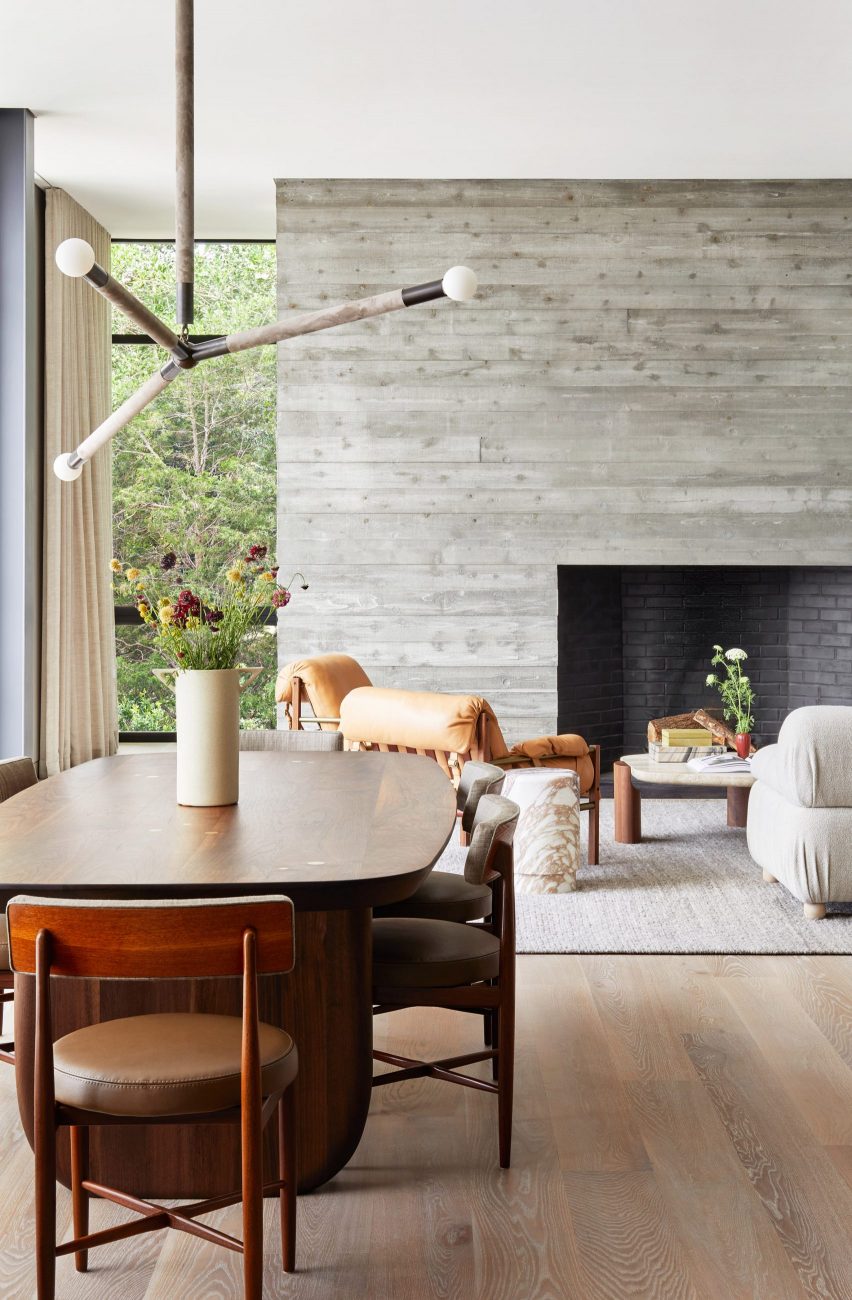
New York practice Kevin O'Sullivan + Associates built a waterfront timber-clad home in the Hamptons village of Sag Harbor that was designed specifically to overlook the sunset.
The home's living areas were organised around a board-formed concrete fireplace that conceals a staircase to the bedrooms and upper levels. The concrete fireplace becomes the focal feature of the living area and contrasts against the greenery seen through its windows.
Find out more about Sag Habor 2 ›
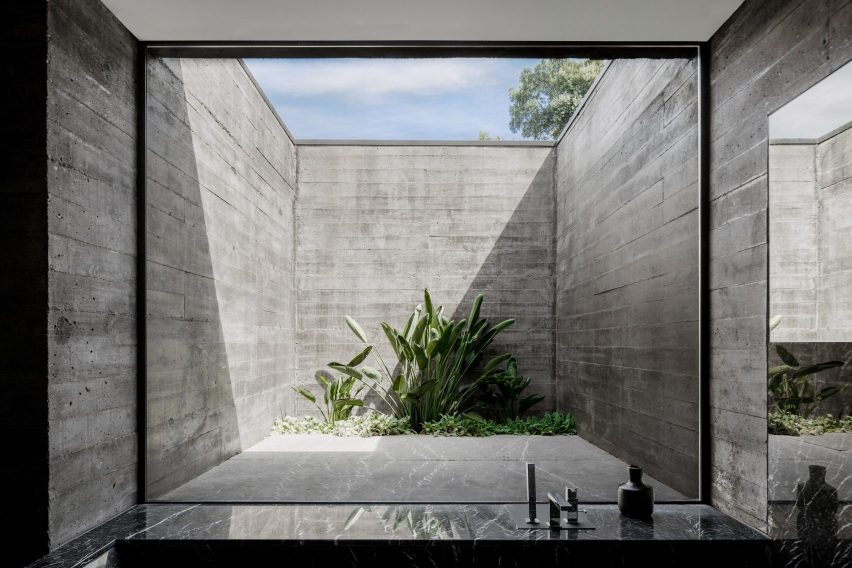
Cork Oak House, Portugal, by Hugo Pereira
This home in Portugal was completed by architect Hugo Pereira. The structure was designed to respond to the topographic conditions of the hilltop site, while also immersing and surrounding its occupants in the undisturbed surroundings.
Constructed using concrete, the home features decorative board-formed concrete walls that stretch from the exterior to the interiors to create a textural tonality throughout.
Find out more about Cork Oak House ›
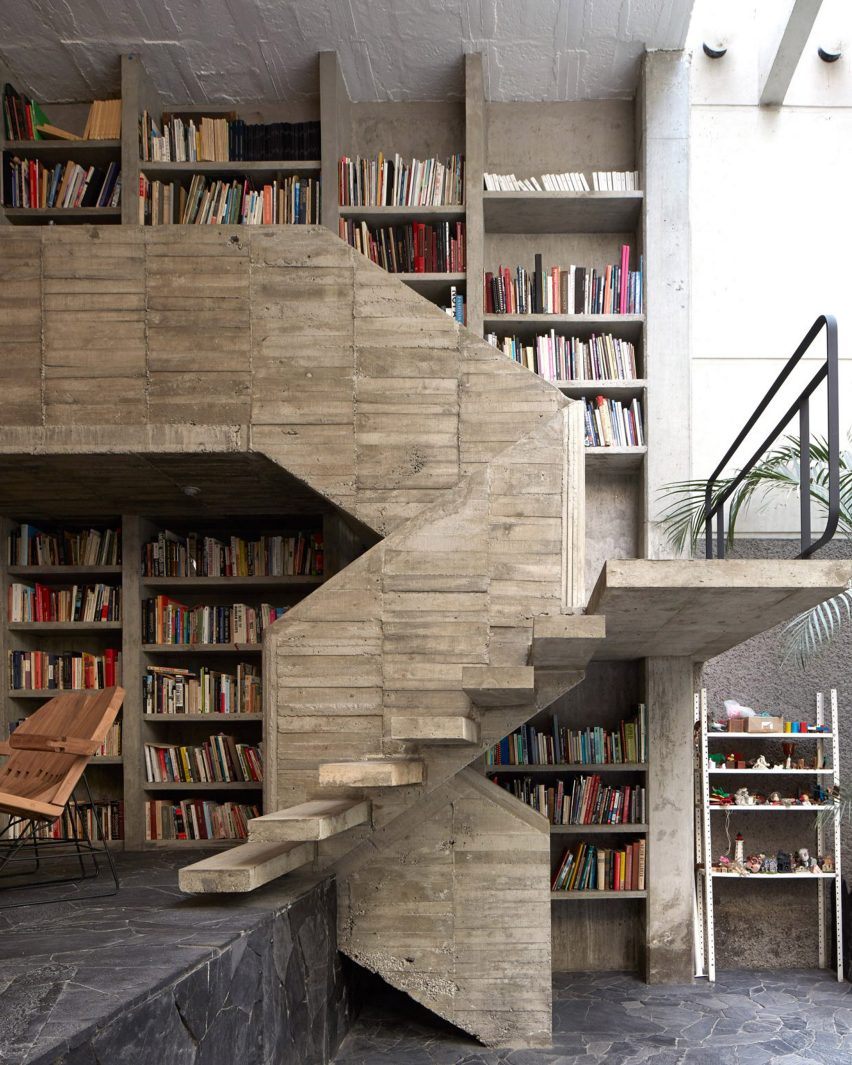
Pedro Reyes House, Mexico, by Pedro Reyes and Carla Fernandez
A board-formed concrete staircase zones a double-height library at the home and studio of Pedro Reyes and Carla Fernandez. The Mexico City home was constructed primarily from concrete and takes cues from the brutalist and modernist buildings in the city.
The interior incorporates exposed concrete, which was stacked and placed together to create irregular shapes and forms, throughout.
Find out more about Pedro Reyes House ›
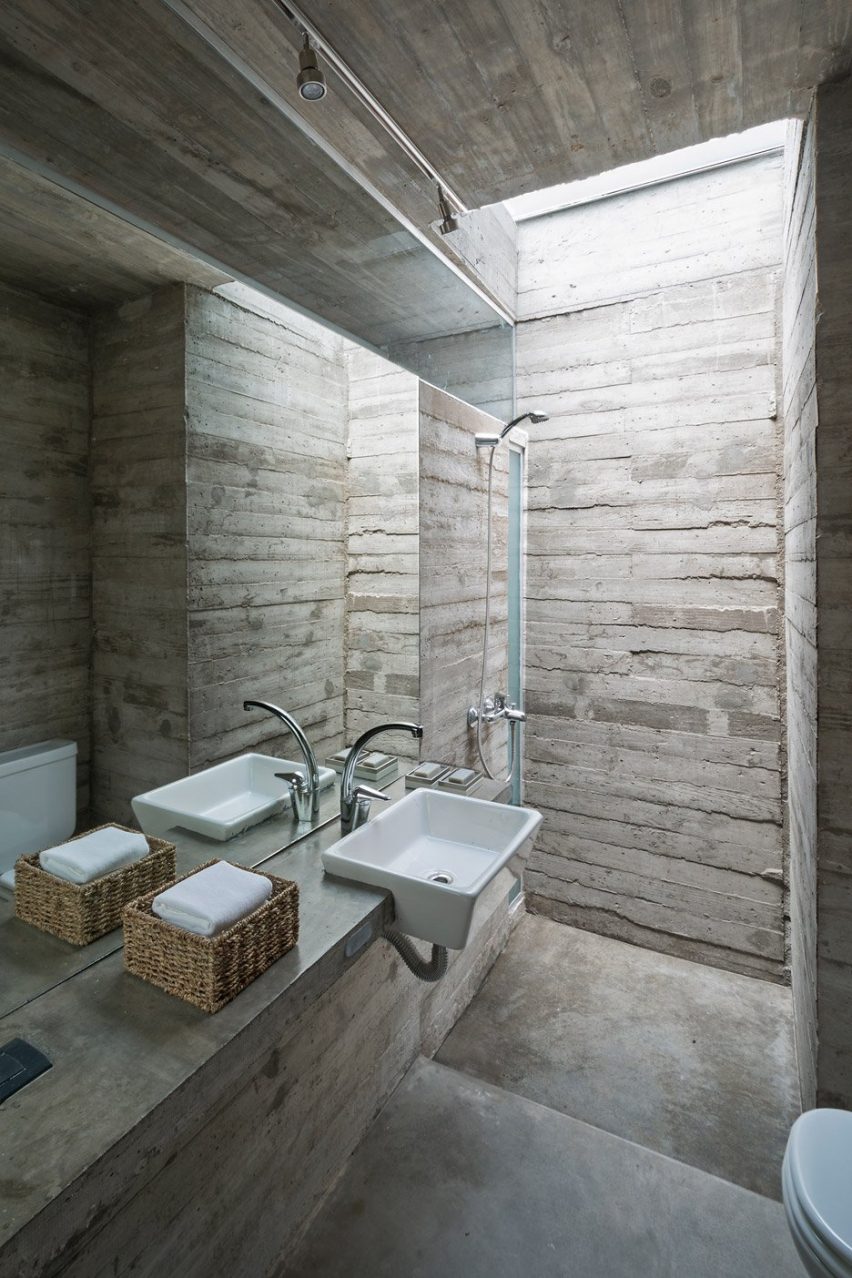
Casa L4, Argentina, by Luciano Kruk and Ekaterina Künzel
Architect Luciano Kruk and his partner Ekaterina Künzel designed a concrete holiday home for themselves that is located on the Argentinian coast and set between a collection of maritime pine trees.
Board-formed concrete walls were used for the entire interior of the home, including in a bathroom. A skylight in the bathroom funnels light above a shower area and illuminates the irregular concrete walls.
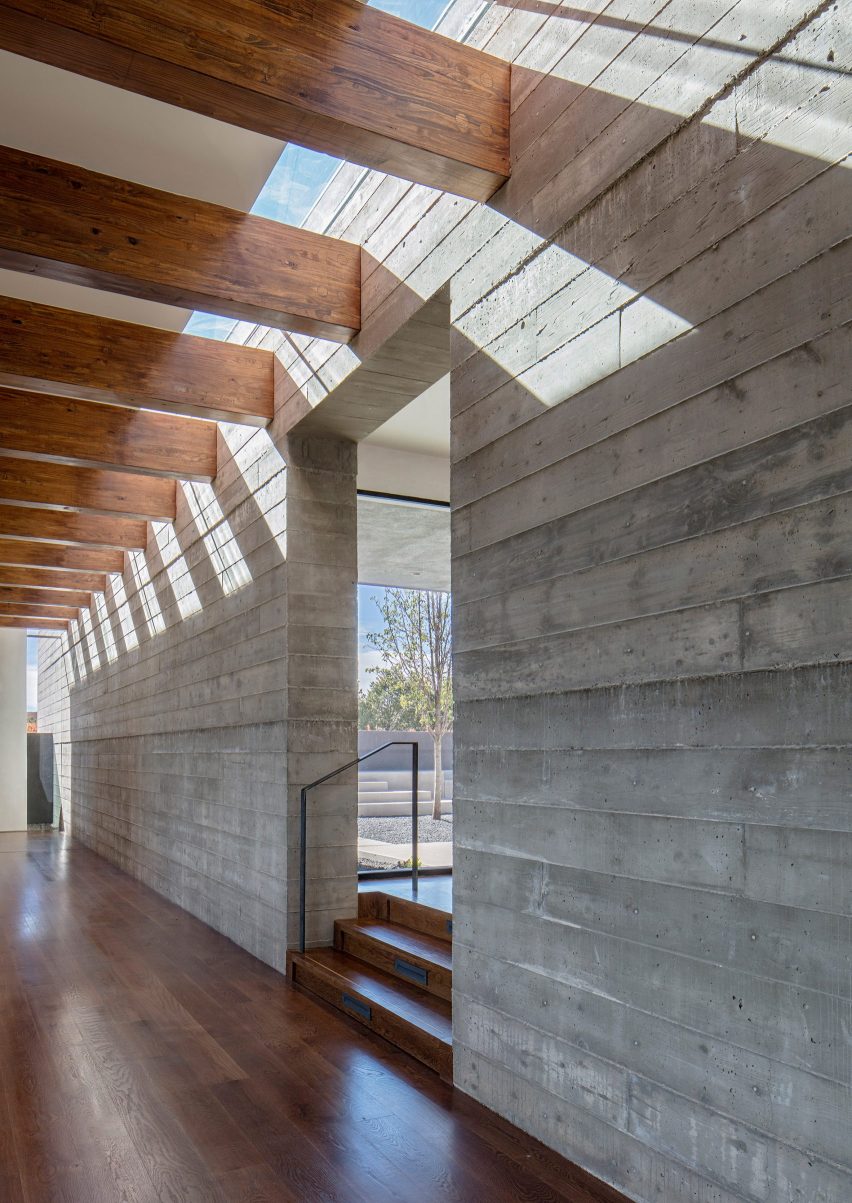
The Sundial House, US, by Specht Architects
This Santa Fe home by Specht Architect, titled The Sundial House, is located on a typical northern New Mexico terrain with undulating surroundings. Specht Architects built the home within a sunken plane in order to comply with the area's height regulations.
Inside, board-formed concrete walls support wooden beams above. Along one of the home's corridors, a skylight stretches above the beams and creates sun-dial-like shadows across the interior.
Find out more about The Sundial House ›
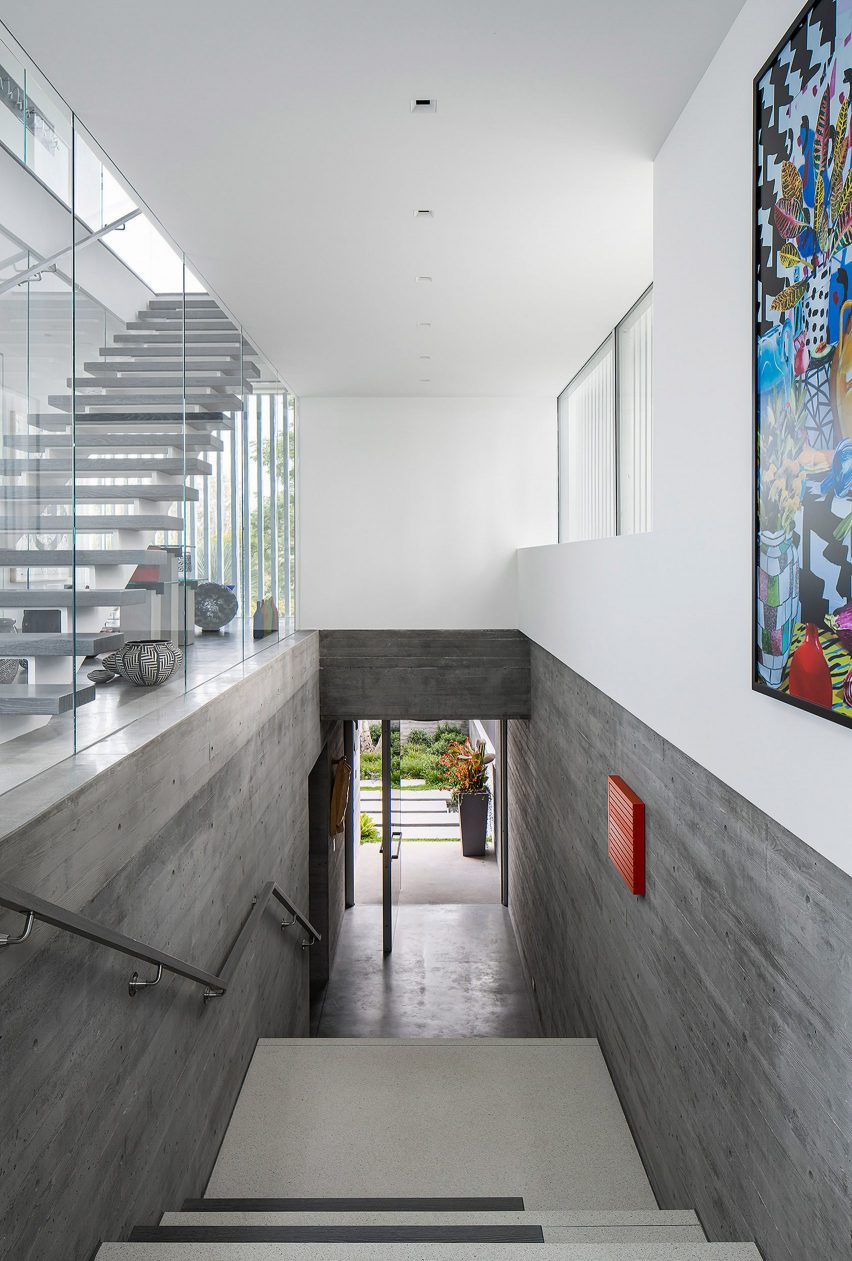
Getty View Residence, US, by Abramson Architects
Located in Los Angeles, Getty View Residence is an 8,000-square-foot (743-square-metre) house. The home is comprised of a collection of rectilinear volumes stacked three levels tall.
The upper levels of the home were decorated with a bright white interior scheme, while its basement and lower levels have board-formed concrete walls.
Find out more about Getty View Residence ›
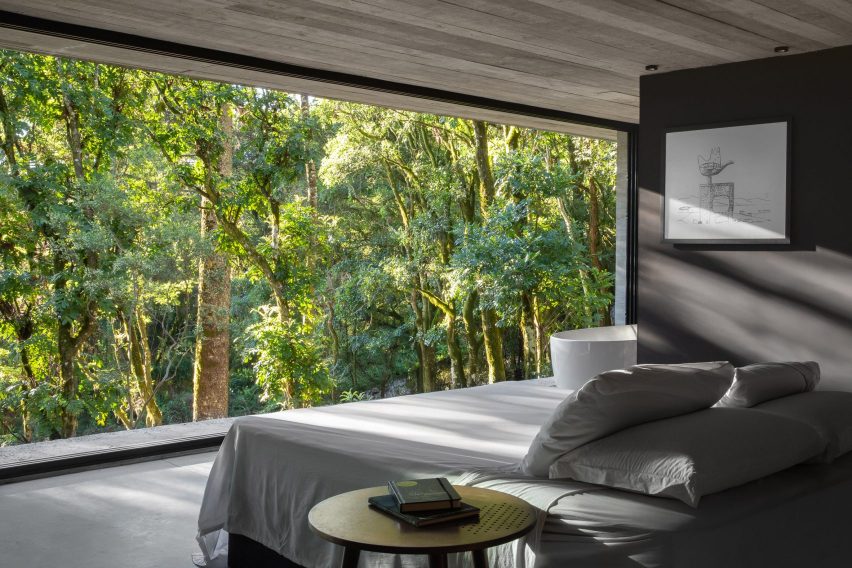
Concrete home, Brazil, by Luciano Basso
Luciano Basso built this home in the forests of southern Brazil around a mature Paraná pine tree. The building has a concrete construction and incorporates full-height windows that overlook the forested surroundings.
Board-formed concrete stretches across almost every surface in the home, including the ceilings in its bedrooms. Tones of grey also run through the home's interior scheme, covering walls, floors and furnishings.
Find out more about the concrete home ›
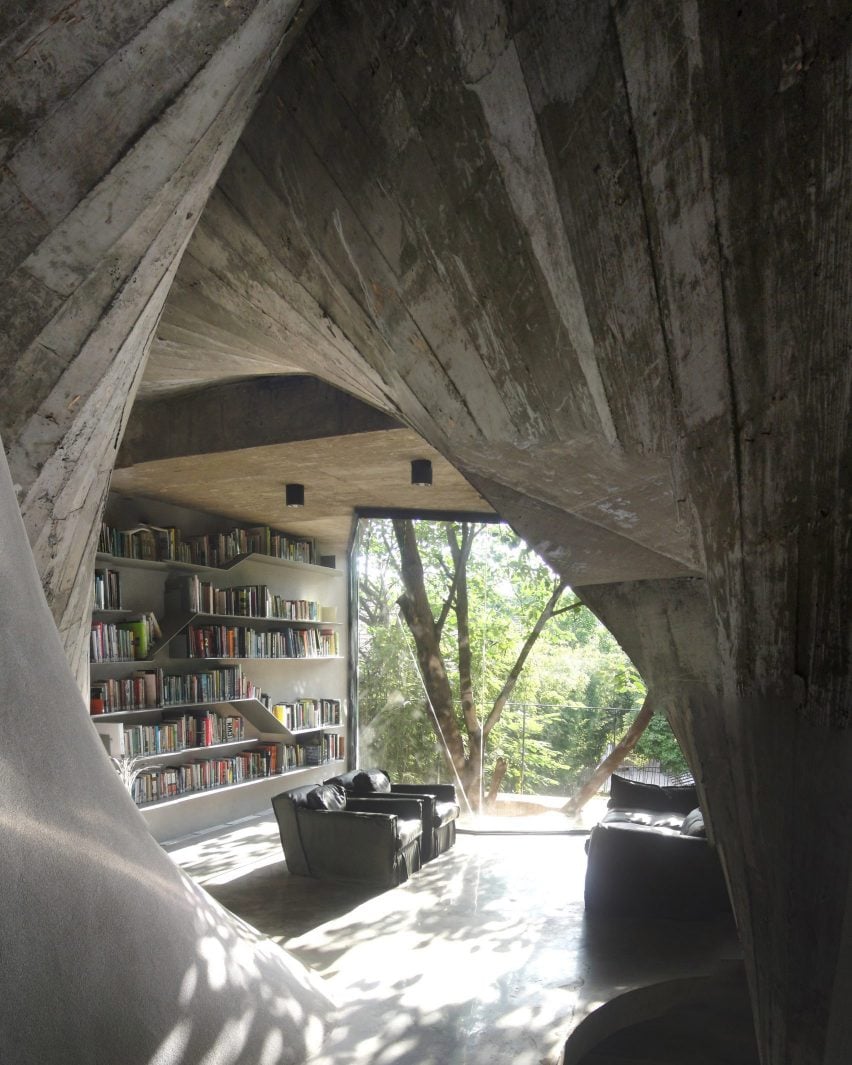
Tea House, China, by Archi-Union
At this home in China, Archi-Union created contorting board-formed walls that lead to a library and studio. The twisted walls provide the space with a cave-like look, which is further enhanced by a floor-to-ceiling window and a terrace area at the rear.
A collection of books line the walls on angular shelving behind a trio of leather-upholstered lounge chairs and a sofa.
Find out more about Tea House ›
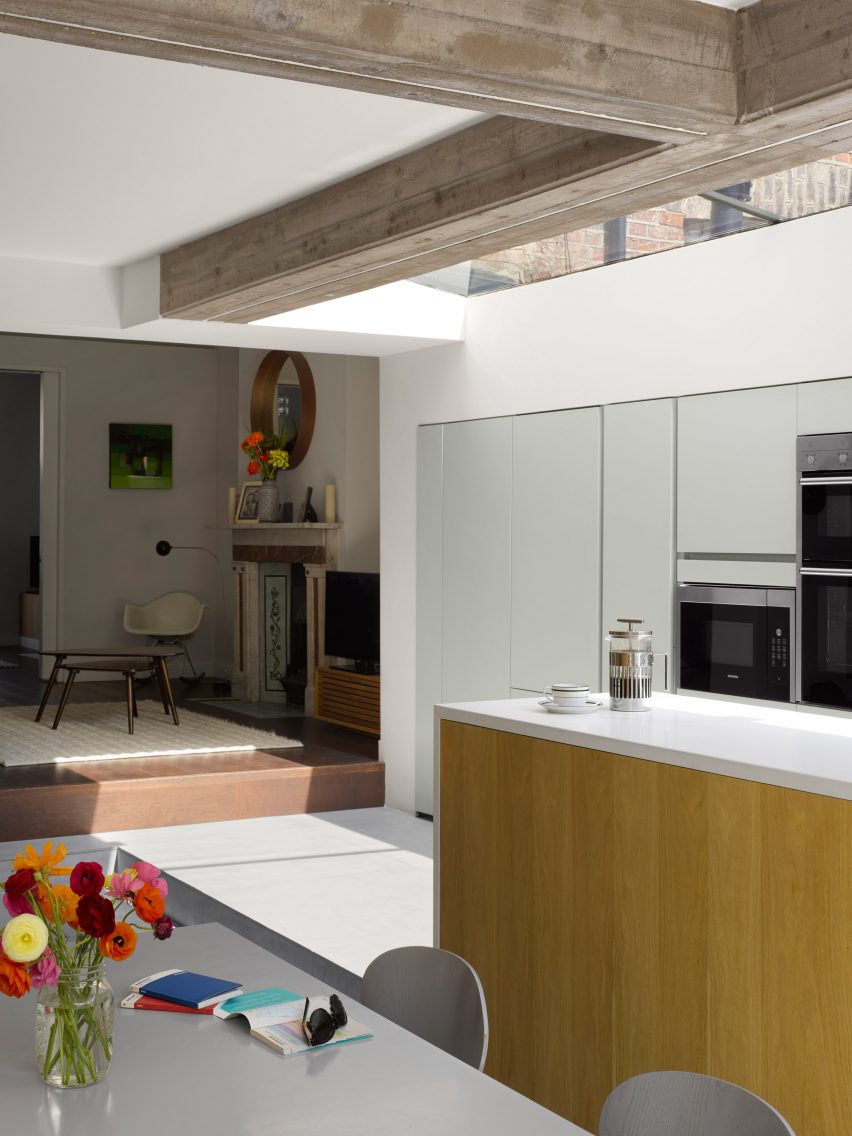
North London home, UK, by Paul Archer Design
London-based studio Paul Archer Design added an extension to this north London home, incorporating coarse concrete walls that contrast against expanses of glazing.
A concrete wall with a board-marked surface extends through the middle of the extension from the kitchen and out to the garden. Over the kitchen, the concrete wall reduces to structural beams that span across the dining and work areas.
Find out more about the north London home ›
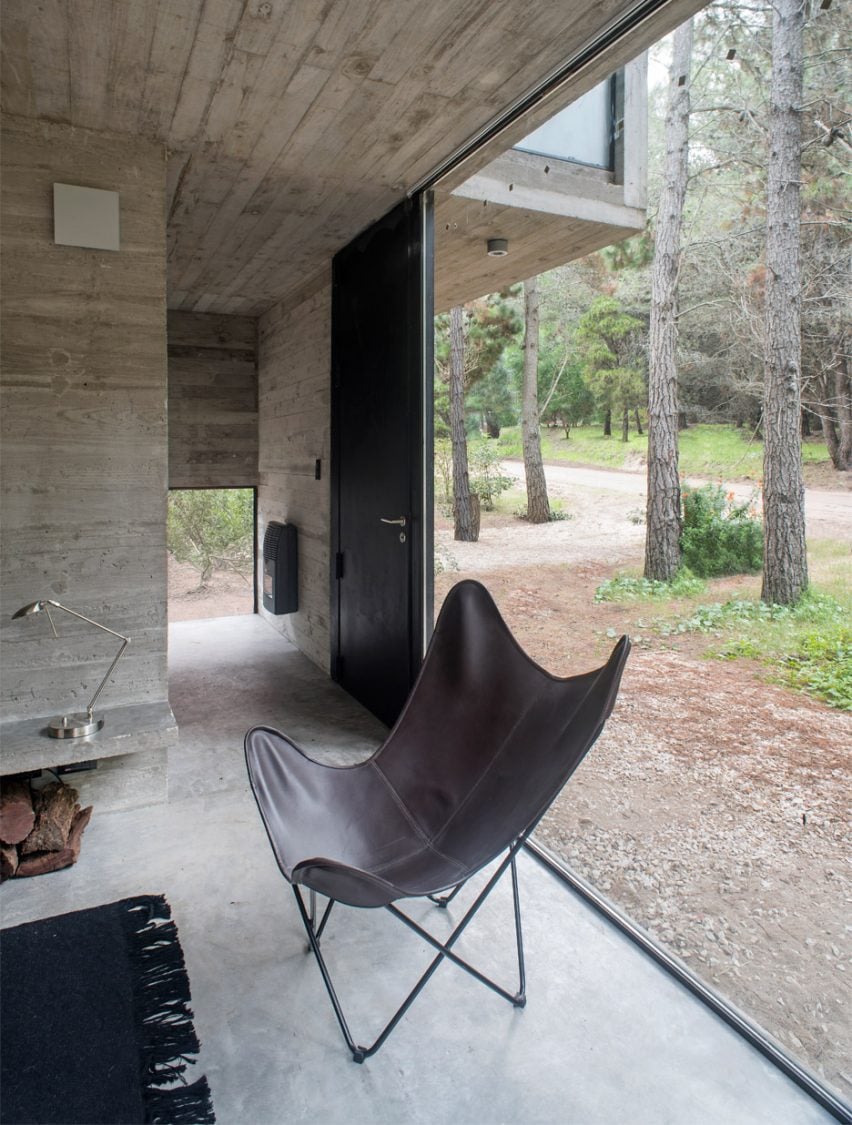
Casa H3, Argentina, by Luciano Kruk
The walls of this summer home in Buenos Aires by Argentinian architect Luciano Kruk were cast using planks of pine, resulting in a textural wood grain across the home's surfaces.
Kruk chose to use a board-formed construction to tie the concrete home to its wooden surroundings. Large glass sliding doors open out to decking and provide Casa H3 with indoor-outdoor living.
This is the latest in our series of lookbooks providing curated visual inspiration from Dezeen's image archive. For more inspiration see previous lookbooks showcasing multi-generational homes, cork-covered walls and homes with shutters.